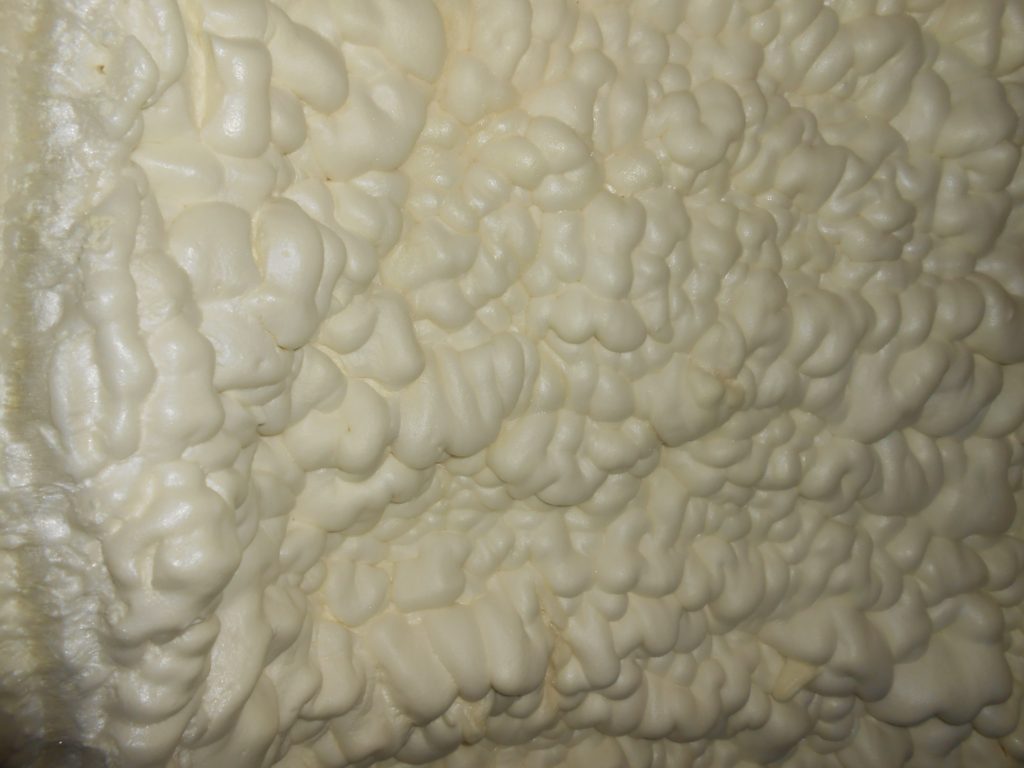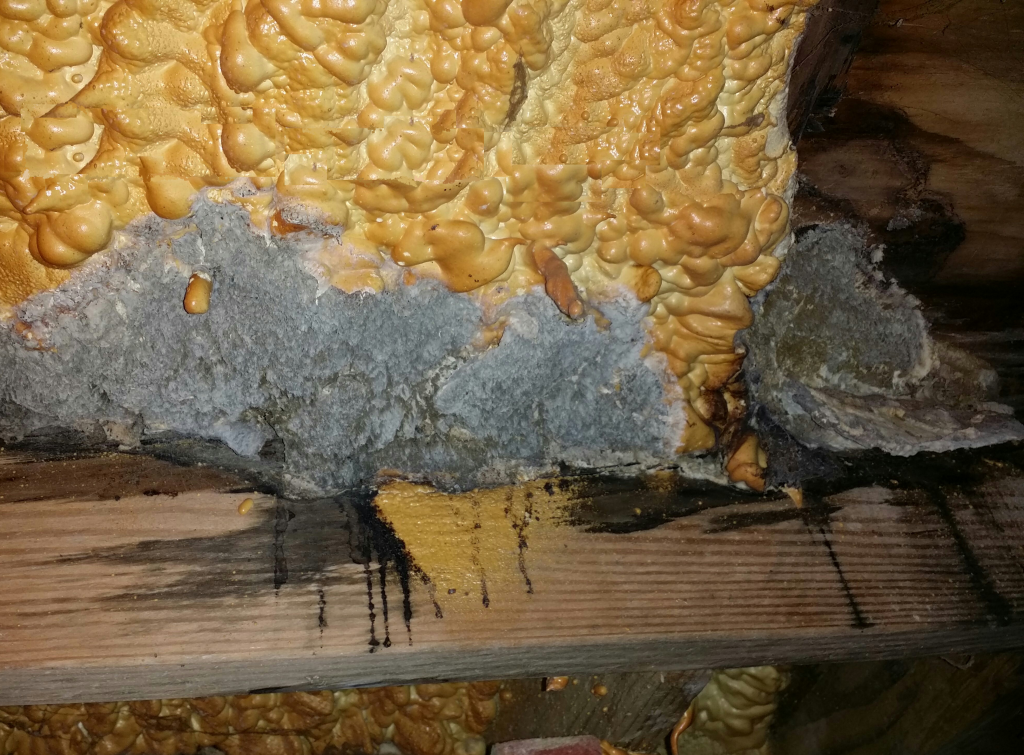Spray foam insulation (SPF) is a type of insulation that is applied on site. It’s typically composed of two different chemicals which are heated, combined and sprayed directly onto the surface to be insulated.

Properly installed, SPF is one of the best insulating materials that can be applied in a structure. In addition to its high R-value, SPF is also an excellent air barrier, responsible for keeping out infiltrating air that carries humidity and unconditioned air into a building.
There are many factors to consider when applying SPF in a structure, with some types of SPF performing better in some locations than others. Installing the wrong type of SPF in an area of a structure can lead to problems with condensation, which left unchecked may cause structural damage.

A qualified professional insulation contractor should be consulted whenever there are questions regarding the proper installation of SPF.
Whenever we encounter a spray foam installation that appears to be installed incorrectly, we recommend the following:
The installed spray foam insulation appears to be a closed-cell/open-cell type. There are varying opinions on the proper type of spray foam installation that should be installed in this location within the structure, with different materials and application techniques available for various building conditions. We recommend evaluation (prior to the end of your inspection period) by a qualified local tradesperson familiar with your location’s climate for further information and recommendations.
SPF installed at the roof line may affect the warranty of the roofing shingles. Determining the warranty implications of spray foam is beyond the scope of a standard home inspection.
Whenever we encounter spray foam installed at the roof line below a shingled roof, we recommend the following:
Spray foam insulation has been applied to the underside of the roof. The installation of spray foam at the roof may affect the warranty of the roofing shingles. The home inspector is not able to identify the manufacturer of the roofing shingles and cannot determine whether the applied spray foam has any effect on any remaining shingle warranty. We recommend attempting to obtain receipts from the seller prior to the end of the inspection period, verifying whether any warranty is in effect and confirming any impact that the installed spray foam insulation may have on that warranty. If this is not possible, we recommend evaluation by a qualified roofer (prior to the end of the inspection period) to determine any warranty implication.
